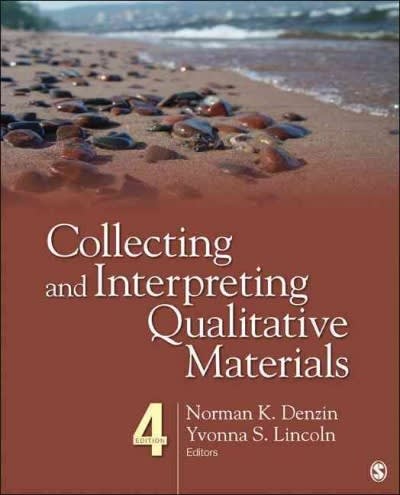Question
Abboud, L. (February 16 2016). The healing effects of hypnosis. Retrieved from: https://www.allinahealth.org/healthysetgo/thrive/the-healing-effects-of-hypnosis Alladin, A. (2010). Evidence-based hypnotherapy for depression. International Journal of Clinical and
Abboud, L. (February 16 2016). The healing effects of hypnosis. Retrieved from: https://www.allinahealth.org/healthysetgo/thrive/the-healing-effects-of-hypnosis
Alladin, A. (2010). Evidence-based hypnotherapy for depression. International Journal of
Clinical and Experimental Hypnosis, 58:2, 165-185, DOI: 10.1080/00207140903523194
Barnes, J., McRobbie, H., Dong, C. Y., Walker, N., & Hartmann-Boyce, J. (2019). Hypnotherapy for smoking cessation. The Cochrane Database of Systematic Reviews, 6, CD001008.
Barrett, D. (2010). Hypnosis and hypnotherapy. Praeger.
Gillian. (August 9 2022). 12 Benefits of hypnotherapies. Gillian Dalgliesh Therapies. Retreieved from:https://www.gilliandalgliesh.com/12-benefits-of-hypnotherapy/
Gupt,A. (2023). Spearman's rank correlation: The definitive guide to understand. Simplilearn. https://www.simplilearn.com/tutorials/statistics-tutorial/spearmans-rank-correlation#:~:text=Spearman's%20rank%20correlation%20measures%20the,represented%20using%20a%20monotonic%20function.
Hasan, F. M., Zagarins, S. E., Pischke, K. M., Saiyed, S., Bettencourt, A. M., Beal, L., Macys, D., Aurora, S., & McCleary, N. (2014). Hypnotherapy is more effective than nicotine replacement therapy for smoking cessation: Results of a randomized controlled trial. Complementary Therapies in Medicine, 22(1), 1-8.
Hendricks, P. S., Wood, S. B., Baker, M. R., Delucchi, K. L., & Hall, S. M. (2011). The Smoking Abstinence Questionnaire: measurement of smokers' abstinence-related expectancies. Addiction (Abingdon, England), 106(4), 716-728. https://doi.org/10.1111/j.1360-0443.2010.03338.x
Hypnosis and hypnotherapy: Royal college of psychiatrists. (2021) . Retrieved from: https://www.rcpsych.ac.uk/mental-health/treatments-and-wellbeing/hypnosis-and-hypnotherapy#:~:text=Hypnotherapy%20is%20a%20type%20of,psychological%20treatments%2C%20or%20pain%20management.
Kotera, Y. (January 3 2018). The history of hypnosis. Derby university. Retrieved from: ~:text=The%20history%20of%20hypnosis%20dates,our%20body%2C%20using%20animal%20magnetism.
Sahour, A., Mohammad Kazem Fakhri, & Mahdi Pourasghar. (2019). Investigating the Effect of Hypnotherapy on Reducing Anxiety and Pain during Labor. BRAIN: Broad Research in Artificial Intelligence & Neuroscience, 10(3), 25-33.
Vickers, A., Zollman, C., & Payne, D. K. (2001). Hypnosis and relaxation therapies. The Western journal of medicine, 175(4), 269-272.
Youseff, S. (2013). Is hypnotherapy an effective treatment for depression?. PCOM Physician Assistant Student Studies Scholarship. Paper 141. Retrieved from: https://digitalcommons.pcom.edu/cgi/viewcontent.cgi?article=1148&context=pa_systematic_reviews
Part 1: Limitations: Review all the articles you included in your reference list/literature articles assignment focusing specifically on the limitations presented in each study (remember to cite the information). List the limitations that you find below.
Part 2: Similarities of Limitations: Look for similarities in the limitations. Do several studies note the same limitation? Write a paragraph that summarizes the similarities noted. Make sure you have cited all of the articles in-text that note similar limitations.
Part 3: Reduction or Avoidance of Impact: Consider the limitations noted in previous studies. Might these limitations impact the study you are proposing? Can you structure your study to help reduce or avoid the limitations that have been noted by previous researchers? If so, how? If not, why?
Step by Step Solution
There are 3 Steps involved in it
Step: 1

Get Instant Access to Expert-Tailored Solutions
See step-by-step solutions with expert insights and AI powered tools for academic success
Step: 2

Step: 3

Ace Your Homework with AI
Get the answers you need in no time with our AI-driven, step-by-step assistance
Get Started


